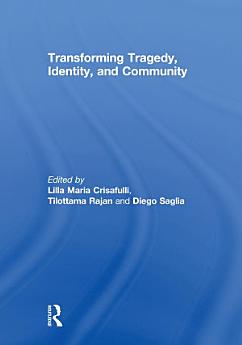Transforming Tragedy, Identity, and Community
Um þessa rafbók
This book was published as a special issue of European Romantic Review
Um höfundinn
Lilla Maria Crisafulli is Professor of English at the University of Bologna. She is director of the Interuniversity Centre for the Study of Romanticism and editor of the journal La Questione Romantica. She has published extensively on P.B. Shelley, on Anglo-Italian Literature, on Romantic women poets and playwrights (see, with Cecilia Pietropoli, Romantic Women Poets: Genre and Gender, Rodopi 2007; and, with Keir Elam, Women’s Romantic Theatre and Drama: History, Agency, Performance, Ashgate 2010).
Tilottama Rajan is Distinguished University Professor and Canada Researh Chair in English and Theory at the University of Western Ontario. She is the founder or the North American Society for the Study of Romanticism, editor of seven books, and author of over seventy five articles and four books, most recently Deconstruction and the Remainders of Phenomenology: Sartre, Derrida, Foucault, Baudrillard (Stanford, 2002), and Romantic Narrative: Shelley, Hays, Godwin, Wollstonecraft (Johns Hopkins, 2010).
Diego Saglia is Associate Professor of English Literature at the University of Parma (Italy). His research focuses on Romantic-period literature and its connections with other contemporary European traditions. He is the author of Poetic Castles in Spain: British Romanticism and Figurations of Iberia (2000), and editor (with Laura Bandiera) of British Romanticism and Italian Literature: Translating, Reviewing, Rewriting (2005).





